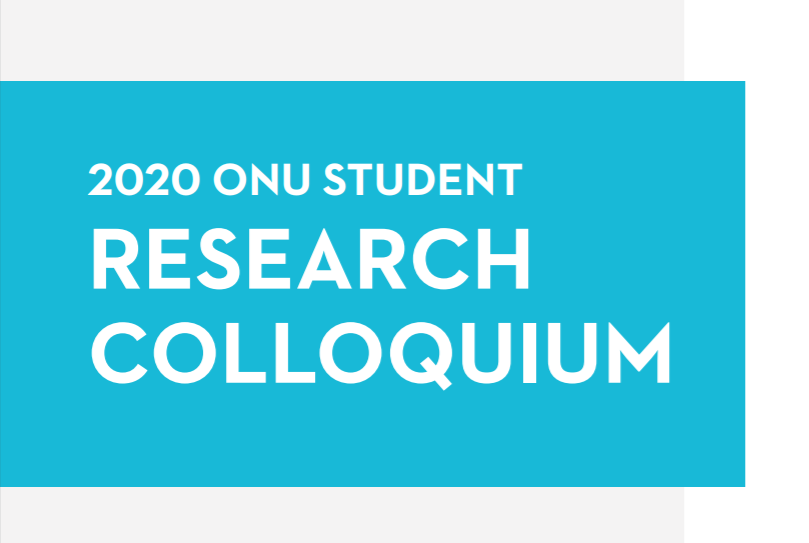Sponsor
Vicki Motz, Ph. D
Ohio Northern University
Biological and Allied Health Sciences
v-motz@onu.edu
Advisor(s)
Vicki Motz, Ph. D
Ohio Northern University
Biological and Allied Health Sciences
v-motz@onu.edu
Rema Suniga, Ph. D
Ohio Northern University
Biological and Allied Health Sciences
r-suniga@onu.edu
Document Type
Video
Start Date
24-4-2020 9:00 AM
Abstract
Historically essential oils have been used to alter mood. Constituents of volatile oils stimulate the olfactory bulbs, which in turn stimulate the limbic system. In response to emotional signals, the amygdala and hypothalamus can release neurotransmitters that affect heart rate (HR) and galvanic skin response (GSR). HR, GSR and responses to a mood survey assessing happiness, alertness, and agitation were monitored prior to and following 3 second exposure to Malaleuca alternifolia, Monarda fistulosa var. menthifolia, Citrus sinensis or Cinnamomum aromaticum. Although no significant changes in heart rate were noted, Monarda essential oil significantly reduced (ANOVA F(30,4) = 3.13; p= 0.02) skin conductance as compared to all other essential oils and the almond oil control. Interestingly, both tea tree oil and cinnamon oil increased skin conductance significantly from control (p= 0.045 by paired t-test), but not significantly differently from each other. While mood shifts were not significant, patterns did become apparent. After inhaling sweet orange oil, respondents self-reported decreased alertness, increased relaxation and lower happiness. Those smelling Monarda trended similarly to sweet orange oil, with similar low alertness and high relaxation, but reported higher happiness scores. Responses to inhalation of tea tree and cinnamon essential oils trended together, with respondents reporting highest alertness, least relaxation and greatest happiness. In light of increased relaxation, decreased alertness and significantly decreased skin conductance, the calming effect of M. fistulosa may be worthy of further exploration. Additionally, Cinnamomum aromaticum may be investigated as a stimulant to increase skin conductance, alertness and happiness.
Recommended Citation
Camacho, Macey; Getnet, Bruk; Hoying, Makayla; and Wright, Megan, "Correlation of Mood and Cardiovascular Changes After Inhaling the Essential Oils of Malaleuca Alternifolia, Monarda Fistulosa Var. Menthifolia, Citrus Sinensis and Cinnamomum" (2020). ONU Student Research Colloquium. 9.
https://digitalcommons.onu.edu/student_research_colloquium/2020/papers/9
Restricted
Available to ONU community via local IP address and ONU login.
Correlation of Mood and Cardiovascular Changes After Inhaling the Essential Oils of Malaleuca Alternifolia, Monarda Fistulosa Var. Menthifolia, Citrus Sinensis and Cinnamomum
Historically essential oils have been used to alter mood. Constituents of volatile oils stimulate the olfactory bulbs, which in turn stimulate the limbic system. In response to emotional signals, the amygdala and hypothalamus can release neurotransmitters that affect heart rate (HR) and galvanic skin response (GSR). HR, GSR and responses to a mood survey assessing happiness, alertness, and agitation were monitored prior to and following 3 second exposure to Malaleuca alternifolia, Monarda fistulosa var. menthifolia, Citrus sinensis or Cinnamomum aromaticum. Although no significant changes in heart rate were noted, Monarda essential oil significantly reduced (ANOVA F(30,4) = 3.13; p= 0.02) skin conductance as compared to all other essential oils and the almond oil control. Interestingly, both tea tree oil and cinnamon oil increased skin conductance significantly from control (p= 0.045 by paired t-test), but not significantly differently from each other. While mood shifts were not significant, patterns did become apparent. After inhaling sweet orange oil, respondents self-reported decreased alertness, increased relaxation and lower happiness. Those smelling Monarda trended similarly to sweet orange oil, with similar low alertness and high relaxation, but reported higher happiness scores. Responses to inhalation of tea tree and cinnamon essential oils trended together, with respondents reporting highest alertness, least relaxation and greatest happiness. In light of increased relaxation, decreased alertness and significantly decreased skin conductance, the calming effect of M. fistulosa may be worthy of further exploration. Additionally, Cinnamomum aromaticum may be investigated as a stimulant to increase skin conductance, alertness and happiness.

